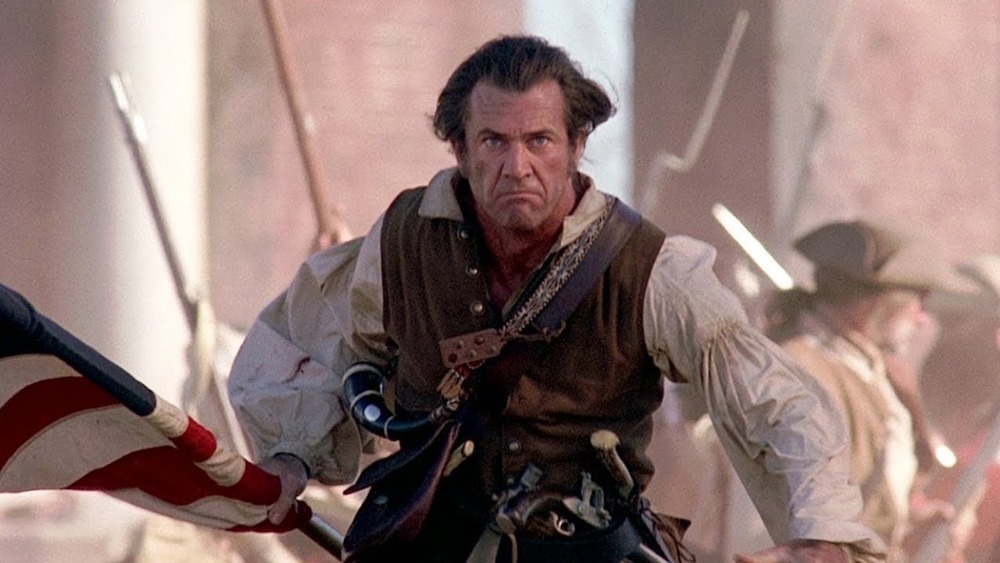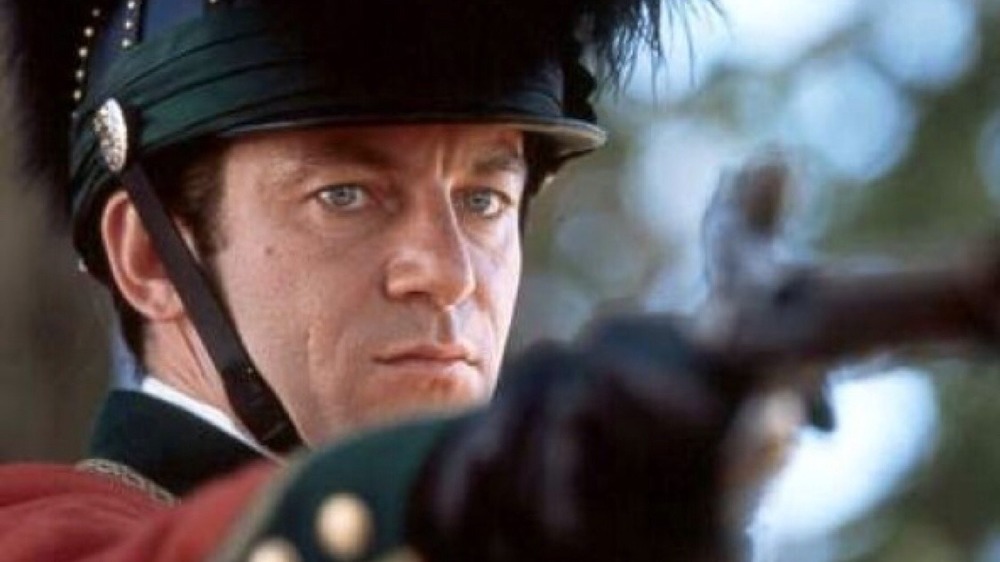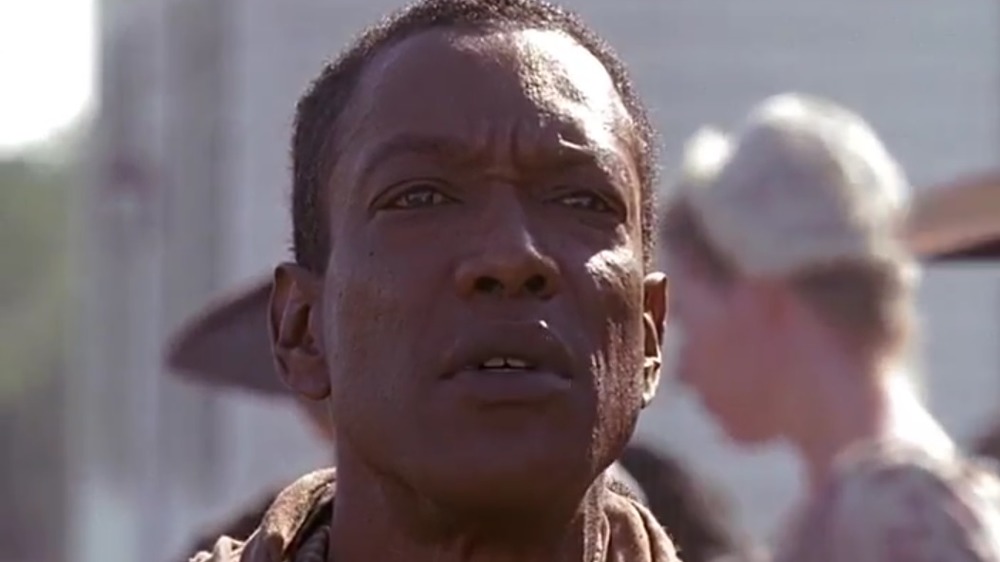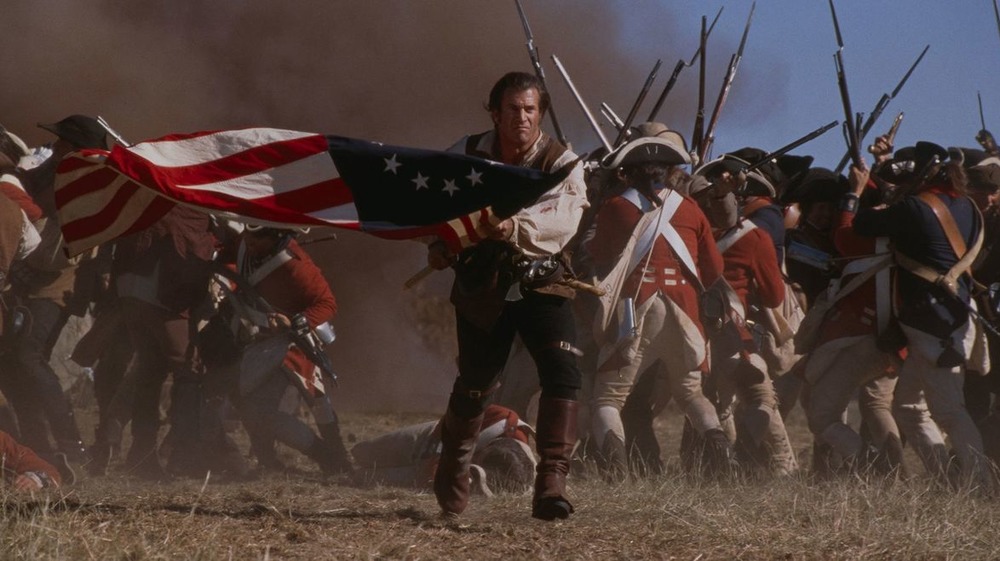Why Historians Can't Stand The Patriot
As humans, we love to look back into the past and see what life was like for our ancestors. We especially want to see the major turning points in our history. They're more than our collective human past; major events can be exciting, and we humans relish excitement, which could explain why we're so fascinated with war. We've been making films about wars for almost as long as films have existed. The World Wars have been immortalized several times over on the big screen. We've seen television shows based around war, like M*A*S*H or Vikings. Just about every type of war you can think of has been turned into a story for the masses, from sword clashes to naval warfare and the one we're here to talk about today, musket shootouts.
The American Revolution isn't exempt from onscreen portrayal. Quite the opposite. Movies about the founding fathers and the birth of the nation have been a common theme. It's a good way to sell tickets to the patriotic while giving them a story that riles up their red, white, and blue excitement, but it's not always something that's done well. In the case of the 2000 Mel Gibson film The Patriot, historical accuracy seems to have gone out the window for the sake of pro-USA feel-good excitement, and when you break it down, it's easy to see why historians might be annoyed by the movie.
That's not what the British weren't like at all
One thing The Patriot does really well is to make viewers align with the soon-to-be Americans by portraying the British as a bunch of sadists who want to murder every American sympathizer they come across. There's only one problem with that: It's not true. Sure, there are soldiers hiding in the ranks of every army who want nothing more than to do cruel things to other human beings, but that's not usually the case. For instance, take British Colonel Tavington, played by Jason Isaac. Tavington is based on a real-life British soldier named Banastre Tarleton. Tarleton wasn't exactly the greatest of guys. He was known, according to The Baltimore Sun, to let his troops kill surrendering or wounded soldiers, but the film makes Tavington's character an absolute monster. He shoots kids, kills prisoners, and sends an entire church of people up in flames. None of which the real Tarleton is known to have done.
As for the Brits as a whole, the movie paints a picture of stuck-up war criminals. In fact, Tavington is accused in the film of breaking "the rules of war," but, as The Guardian points out, the rules of war weren't even a thing until the Geneva Convention nearly a century later.
Black people seem freer than they were
The British were a globe-spanning empire, and they can take the hits the film throws at them. In contrast, the film probably shouldn't have tried to downplay the suffering of Black people during the revolutionary era. Trying to make colonial militiamen seem sympathetic seems like a crappy white-person way to re-write the history of race relations in the United States. What exactly are we referring to? Pretty much every interaction with Black people in the movie.
Mel Gibson's character in the film, Benjamin Martin, is a mix of several real-life revolutionary war heroes, but the biggest influence was Francis "Swamp Fox" Marion. The movie goes out of its way to portray Martin as a friend of the Black plight, which historian Timothy J. Shannon tells The Baltimore Sun wasn't the case for the historical figure who inspired the movie character. You know how the film shows Black soldiers fighting in a Carolina militia? That wouldn't have happened, either. According to the LA Times, every time the right for Black men to bear arms in the war came across the colony's legislature, it was voted down. Black men did serve in the war, just not there.
For a final point of "um ... what?", there's no way former slaves are going to accept their former master as lovingly as Martin's former slaves did. Sure, he freed them, but first he enslaved them.
The film depicts the fighting incorrectly
Okay, we'll start by saying that film does depict certain aspects of the actual fighting pretty well. The opposing armies really would file into ranks and lob musket balls back and forth until one of the teams ran off, surrendered, or was wiped out. But there was a lot more to the fighting than The Patriot shows, and some of the things it does show are patently off.
Most of us have been taught in school that the colonies' use of guerrilla tactics are what won us the war, but from what a historian told The Baltimore Sun, that's not the case, no matter what The Patriot says. Militiamen weren't good soldiers. They didn't follow commands and while not cowards, they were known for running from fights. It's hard to hear, but it's true. That's why guerrilla warfare worked for us, sort of. It helped, but the American colonies didn't start to win the war until George Washington put his efforts into training the men to be more like the British soldiers. You know, professionals.



